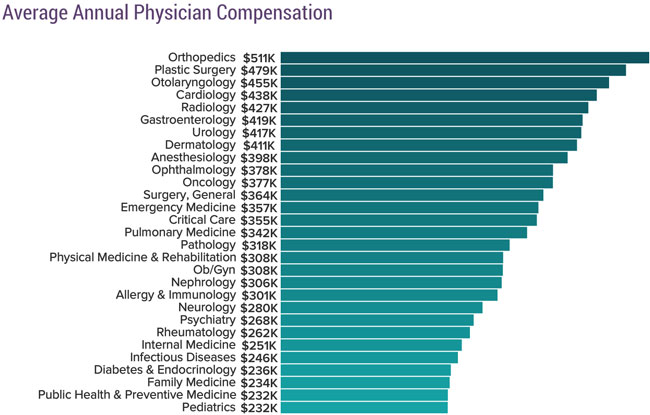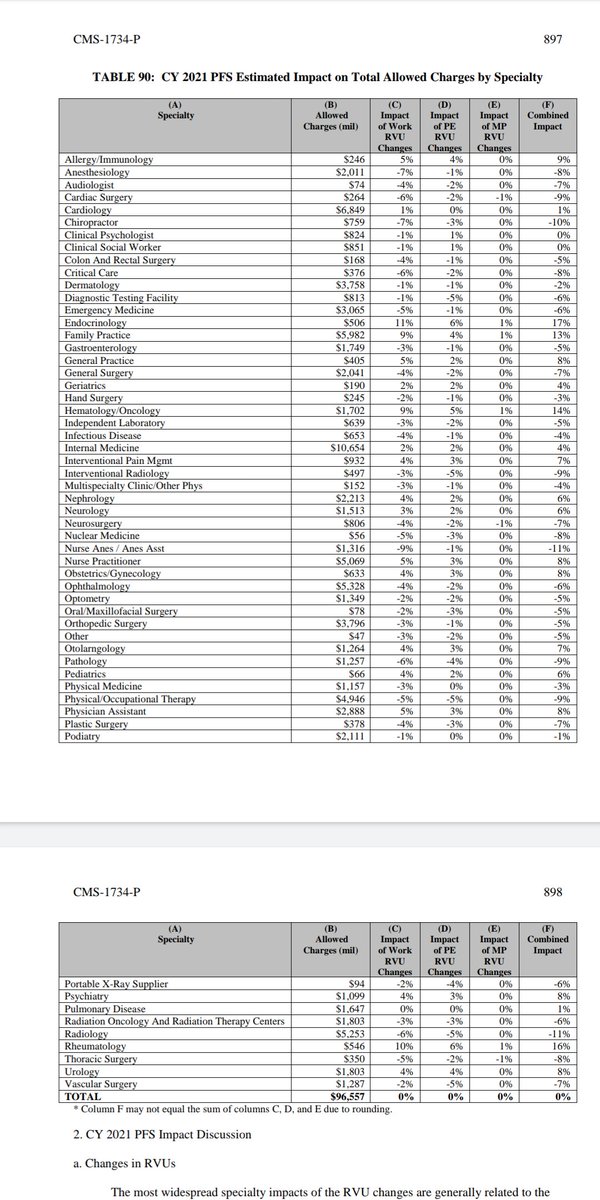1/ Kudos to @CMSGov for following through on intentions to increase relative pay for "the kind of care where clinicians need to spend more face-to-face time with patients, like primary care and complex or chronic disease management."
#PhysicianFee
#PhysicianFee
2/ When the "relative value units" for every billable procedure in healthcare is set, new technology/ procedures tend to get high assessments of complexity and effort.
When, over time, specialists get really good (and quick) at them, these "RVUs" are rarely revised downwards
When, over time, specialists get really good (and quick) at them, these "RVUs" are rarely revised downwards
3/ this is part of the reason why there is such a big disparity in pay in the US between doctors who mostly talk to patients, and those who mostly perform procedures.
Also related, why we have a primary care shortage.
(Credit Medscape)
Also related, why we have a primary care shortage.
(Credit Medscape)
4/ usually we like to blame the @AmerMedicalAssn advisory body that suggests these RVU updates (which @CMSGov generally follows), called "The RUC"
There are 29 members: 24 are specialists and 5 represent primary care https://abs.twimg.com/emoji/v2/... draggable="false" alt="🧐" title="Gesicht mit Monokel" aria-label="Emoji: Gesicht mit Monokel">
https://abs.twimg.com/emoji/v2/... draggable="false" alt="🧐" title="Gesicht mit Monokel" aria-label="Emoji: Gesicht mit Monokel">
(But I can& #39;t blame them today!) https://khn.org/news/ama-center-public-integrity/">https://khn.org/news/ama-...
There are 29 members: 24 are specialists and 5 represent primary care
(But I can& #39;t blame them today!) https://khn.org/news/ama-center-public-integrity/">https://khn.org/news/ama-...
5/ there have been calls to reform, or even abolish the RUC& #39;s influence on government rate setting (which then cascades down to all private payers too)
Here& #39;s one from @amprog https://www.americanprogress.org/issues/healthcare/reports/2018/07/13/453159/rethinking-the-ruc/">https://www.americanprogress.org/issues/he...
Here& #39;s one from @amprog https://www.americanprogress.org/issues/healthcare/reports/2018/07/13/453159/rethinking-the-ruc/">https://www.americanprogress.org/issues/he...
6/ but in this case, it was the RUC itself that recommended these reforms to increase relative value of "cognitive procedures"
I& #39;d love to know the inside story of those deliberations!
I& #39;d love to know the inside story of those deliberations!

 Read on Twitter
Read on Twitter



